Geopolitics: A Report on International Relations and Geography
VerifiedAdded on 2023/06/04
|5
|1371
|131
Report
AI Summary
This report delves into the multifaceted field of geopolitics, commencing with the foundational concept that geography significantly influences a nation's destiny, encompassing its strategic, political, and economic facets. It explores how geographical limitations impact economic development, while also acknowledging the potential disruptions caused by natural disasters and health issues. The report examines how multinational corporations exploit countries with abundant natural resources, and the potential for corruption when heads of state engage in financially lucrative arrangements. It further analyzes the correlation between a country's economic condition and its geographical location, especially in relation to neighboring countries and political stability. The report then discusses the North-South divide, and how historical factors have shaped prosperity and poverty. It also presents the geographical hypothesis, which posits that geographical differences explain disparities between rich and poor countries. The report also addresses climate, disease, and the limitations of the geographical hypothesis, providing a comprehensive overview of geopolitical factors and their impact on international relations. Finally, the report considers the roles of soil, land ownership, and technology in geopolitical development.
1 out of 5
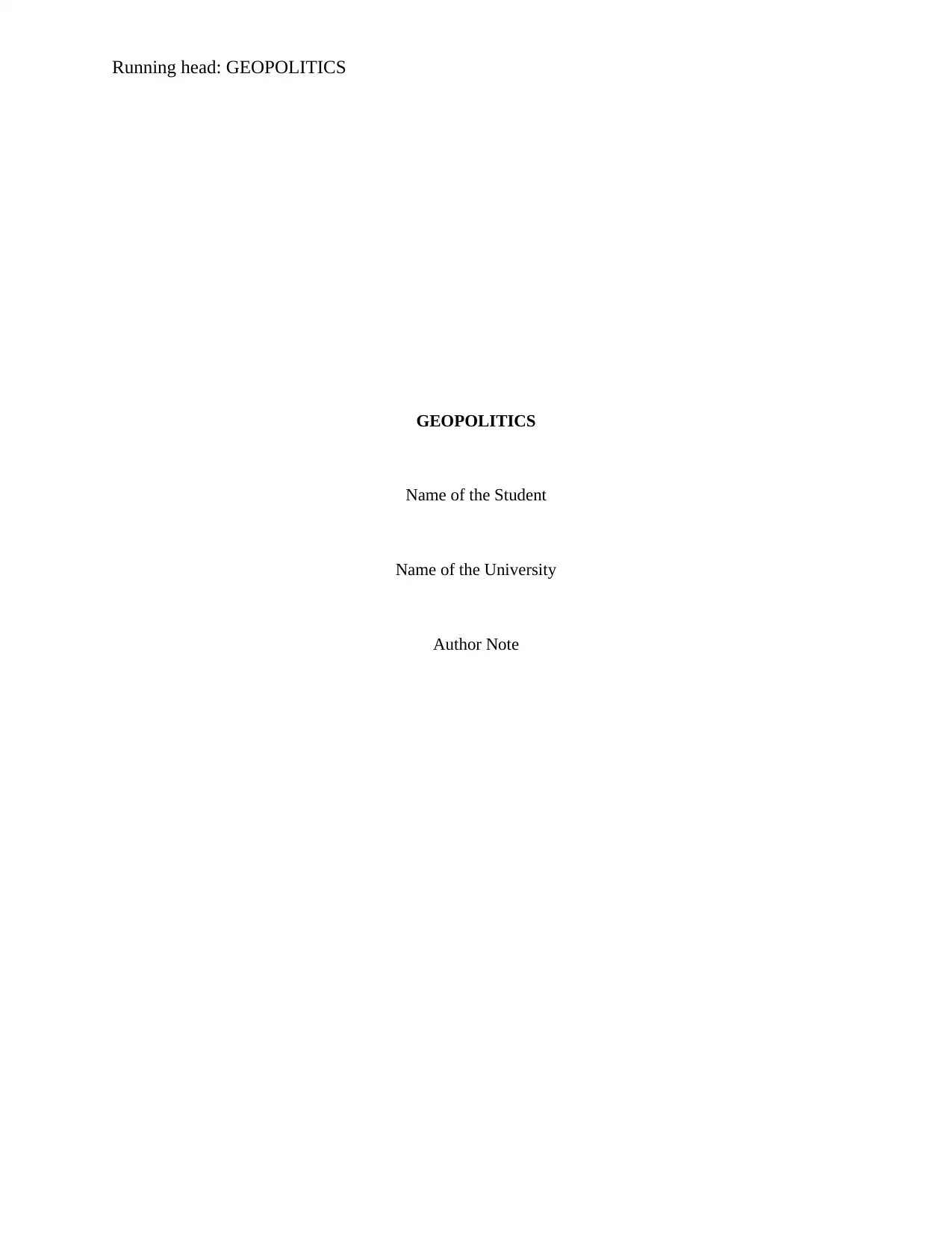
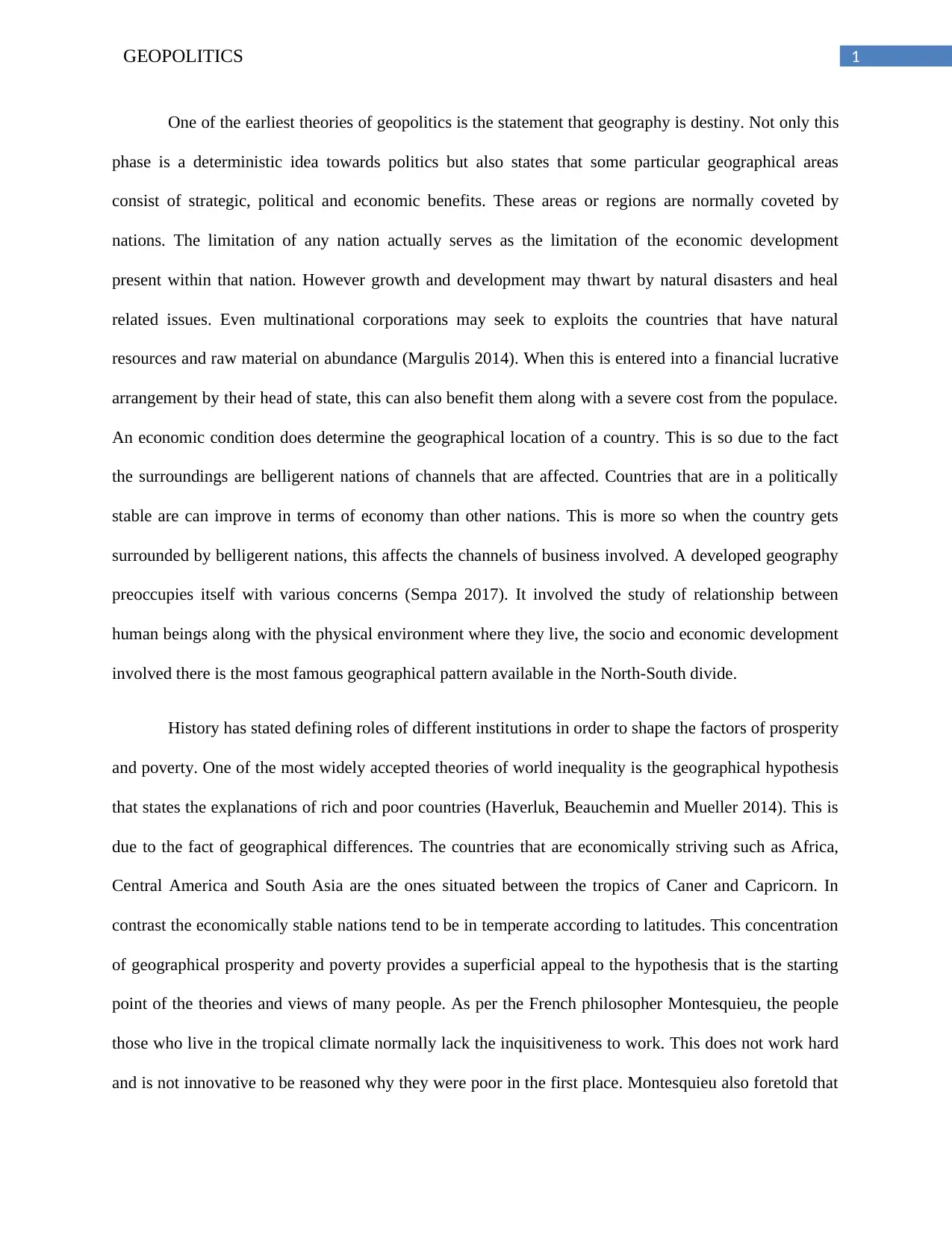
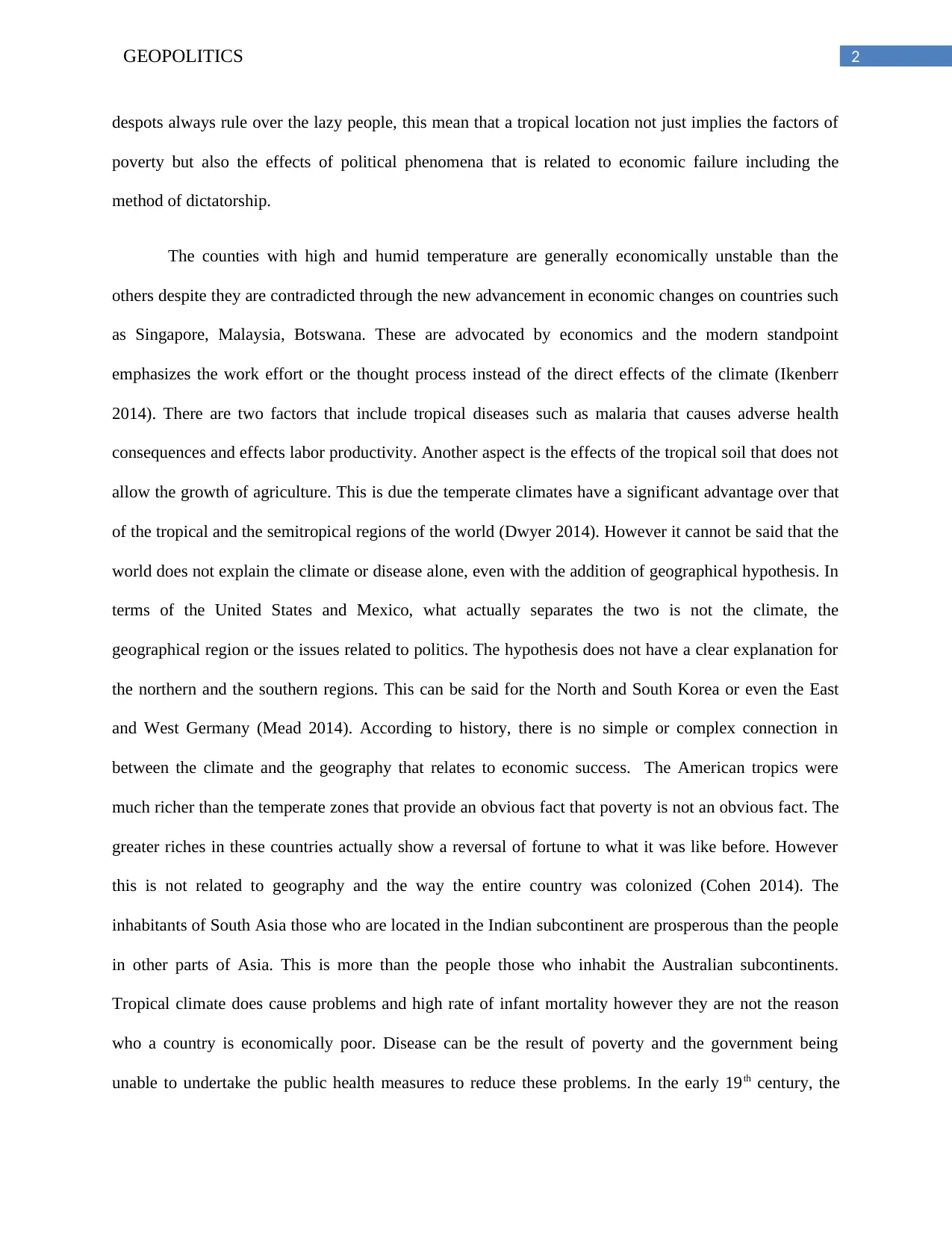
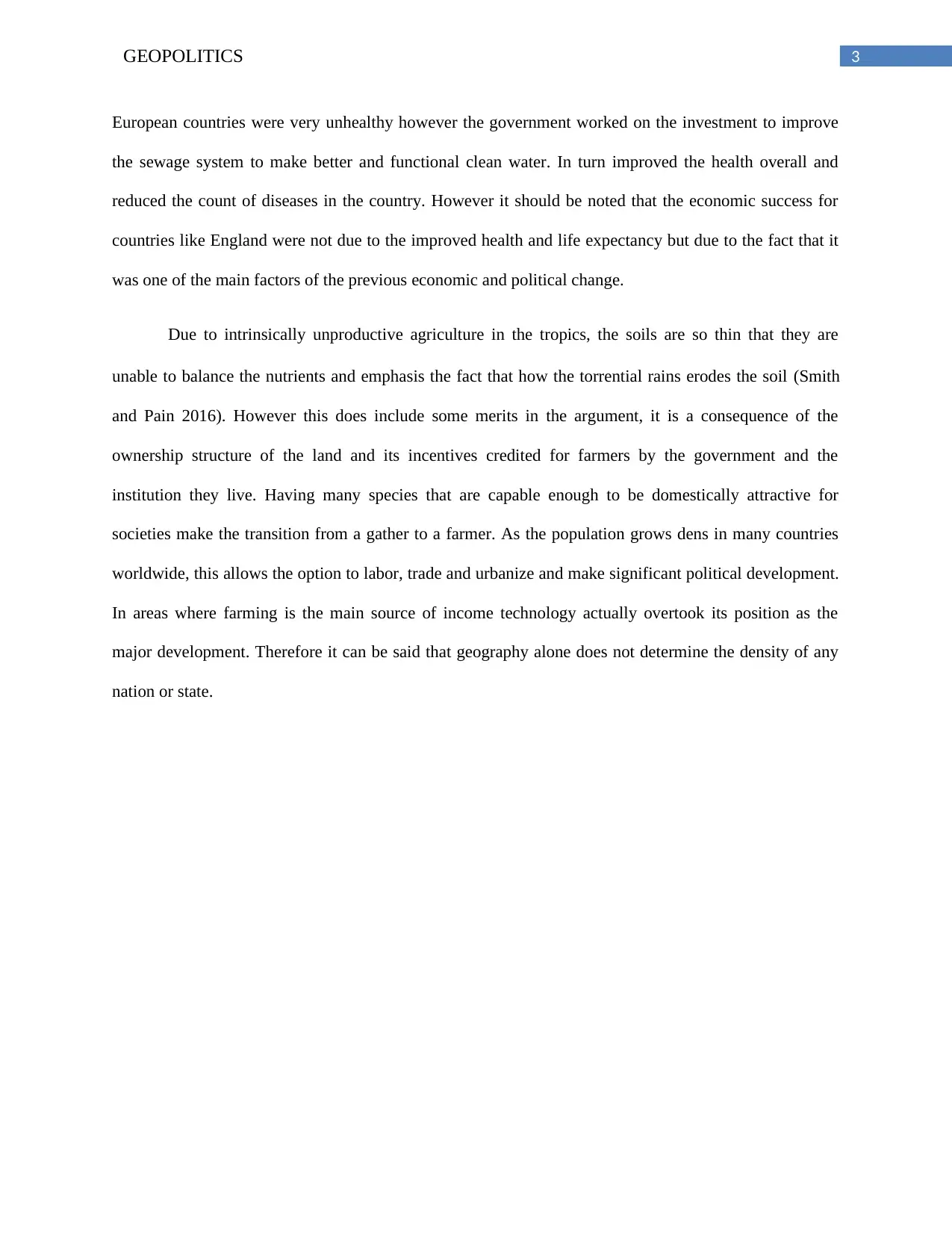
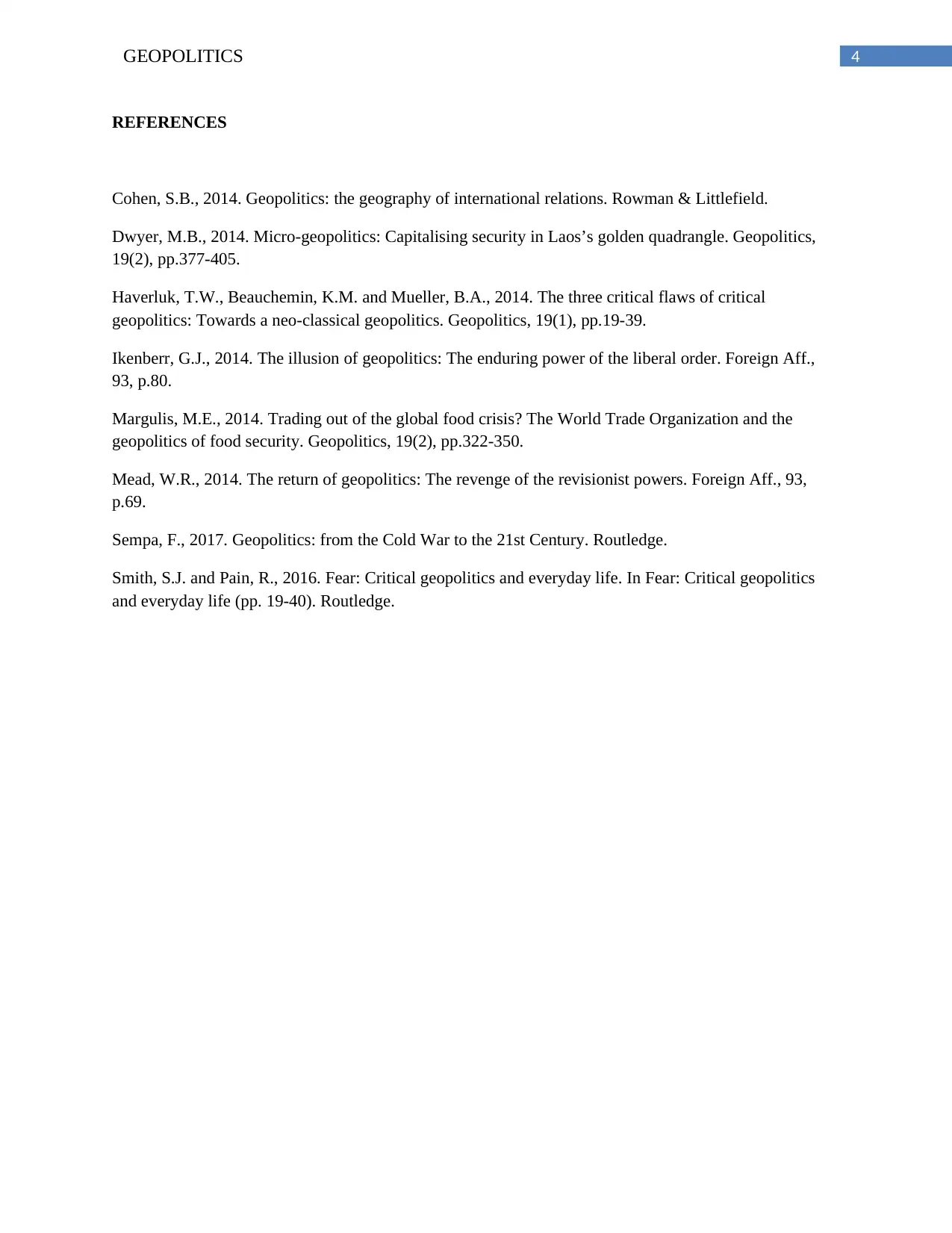



![[object Object]](/_next/static/media/star-bottom.7253800d.svg)